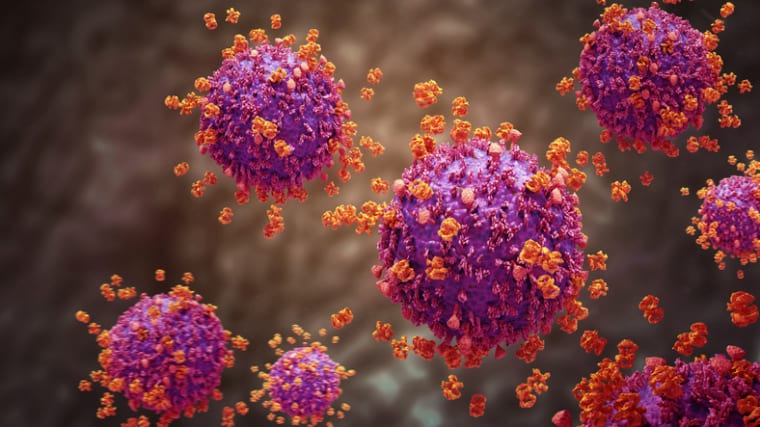The continuous COVID-19 developments are both dizzying and daunting. Countries and communities alike are grappling with strained health systems and strict containment measures, and families are trying to balance some sense of normalcy while safeguarding themselves and loved ones. We also know that families and communities who were already facing health and economic challenges will likely be the hardest hit. These kinds of crises lay bare the inequities that existed before the crisis hit.
In the private sector, leaders are trying to protect their workers, maintain business continuity, and make decisions in the context of significant economic uncertainty. The Internet is full of advice for companies on a range of issues, including health and hygiene, legal parameters, employee policies, supply chain, and communications.
When faced with this unremitting uncertainty, how can a company maintain clarity on its societal purpose? What is the role and responsibility of your business in a time of chaos and crisis? In answering these questions, we are mindful of the Business Roundtable’s recently revised Statement on the Purpose of a Corporation. Nearly 200 CEOs redefined corporate purpose as benefitting all stakeholders, including customers, employees, suppliers, communities, and shareholders.
Based on FSG’s work advising executives on corporate purpose, shared value, corporate responsibility, and philanthropy, we have identified four levers to guide your company’s societal purpose during this rapidly evolving global crisis:
1. Leverage Your Core Business Assets
A company’s most valuable contribution to addressing COVID-19 resides in using its unique assets and capabilities to meet the pressing needs of individuals and communities. Government agencies and NGOs rely on technical expertise and manufacturing capacity of the private sector to meet critical needs. This can take different forms:
- Product manufacturing and donations: 3M’s personal protective equipment has been in high demand among health workers and the public. The company proactively ensured pre-stocked inventory with its international NGO partners such as Direct Relief and distributed donations of 3M’s masks, respirators, and hand sanitizer in immediate response to the COVID-19 outbreak. 3M is also increasing production to meet increased global demand and helping to educate governments and consumers on respiratory protection, such as the distinction between respirators and masks (i.e., respirators protect the wearer from their environment, whereas masks protect the environment from the wearer).
- Modifying patient-centric service offerings: To reduce financial obstacles to patients being tested, major health insurers such as UnitedHealthcare, Humana, and Cigna and are now covering the full cost of diagnostic tests for COVID-19 for their members who will face no co-pay, co-insurance, or deductible payments for these tests.
- R&D and innovation: Biotech and pharmaceutical companies are accelerating their focus on testing, treatment, and ultimately prevention of COVID-19. Abbott is actively working to develop coronavirus tests on its different molecular diagnostics platforms—one test for central laboratories and hospitals and one for physician offices and other point-of-care settings.
- Communications and media: Major media companies have enormous influence and power in how the public understands and experiences this evolving public health crisis. The around-the-clock media frenzy can drive viewership and profits, but it also can induce irrational counterproductive behavior. A purpose-driven media company should subordinate sensational, anxiety-inducing headlines and clickbait in service of more measured, science-based, and non-partisan information and guidance.
2. Generosity Still Matters
Much like during natural disasters, cash contributions remain a critical tool in supporting existing community resources to fight this pandemic. Corporate philanthropy leaders can consider the advice my fellow co-CEO, Dr. Lauren A. Smith, provides in her recent blog: “COVID-19—Seven Things Philanthropy Can Do,” which includes listening to community needs, helping nonprofits maintain critical operations, acknowledging the specific vulnerability of historically marginalized communities, tapping into local structures, and ensuring the consent of the local government and community.
Companies are already stepping up. Initial tracking shows that total philanthropic spending in response to COVID-19 has exceeded $1B globally, with companies and their foundations representing over 80% of pledges and contributions. MasterCard has contributed $25M to a $125M partnership with the Bill & Melinda Gates Foundation and Wellcome Trust to create a COVID-19 Therapeutics Accelerator. Merck is supporting the procurement of supplies, assisting frontline health workers, and providing donations for the ongoing response.
3. Compassion vs. Costs
The ways in which companies treat their workers in times of need present a real test of corporate purpose. How do companies respond when employees cannot come to work due to mandated office closures, required self-quarantines, or school closures?
With the current outbreak, many companies are learning that existing time-off policies negatively affect the employees that most need support. Companies need to balance the bottom line with a sensitive and adaptive approach to employee sick leave and personal time.
Some companies are already being proactive in supporting their most vulnerable employees. When Microsoft asked its Puget Sound employees to work from home, it resulted in a reduced need for on-site staff such as shuttle drivers, café workers, and on-site tech support. Instead of reducing their pay, Microsoft is paying their 4,500 hourly employees and vendors full regular pay during this period of reduced service needs.
Walmart announced this week that it would provide up to two weeks of pay for full and part-time hourly employees who are diagnosed with COVID-19 or placed in quarantine. These employees will not need to use their paid leave and may be eligible for an additional 26 weeks of pay replacement. Similarly, Apple is providing unlimited paid leave to hourly employees (including retail), who become sick with cold or flu symptoms similar to COVID-19.
Lyft, whose drivers are classified as contractors, committed to providing financial assistance to their drivers should they be diagnosed with COVID-19 or placed in quarantine. These actions go beyond contractual obligations to support drivers financially when they cannot drive, while also protecting their riders’ health.
4. System Problems Require System Solutions
When we inevitably move past this acute crisis and return to some sense of normalcy, how will a company’s purpose guide its long-term commitment to improving health care and public health infrastructure and systems?
At a global level, companies can engage in existing multi-stakeholder structures such as the Global Health Security Agenda Private Sector Roundtable and the Coalition for Epidemic Preparedness Innovations. These and other structures are set up to help invest in the development of medical countermeasures against emerging diseases as well as to take a cross-industry approach to strengthening health systems for better prevention, detection, and response to health crises.
In the United States, in particular, the scramble to contain COVID-19 and ramp up testing and treatment has exposed real challenges with the existing health care system. The nearly 30 million uninsured Americans are more likely to have chronic illnesses that are undiagnosed or untreated because of their lack of access to appropriate health care before the pandemic hit. That places them at increased risk for complications if they develop COVID-19. Although most cases of COVID-19 appear to be mild, if these people do become ill, they will likely face medical bills that far exceed their financial capacity.
The private sector can be an influential voice in helping strengthen health care and public health systems, both in the US or globally. In addition to supporting accessible and affordable health insurance, companies can be champions for the public health systems that are required for their businesses to have a safe, healthy community in which to function. Public health leaders can use their support to make sure they have the resources they need to do their jobs before crises hit. We also know that factors like safe and affordable housing, education, access to healthy, affordable food, and self-sustaining employment contribute much more to both individual and community-level health and wellbeing.
The role of corporations is imperative to affect any meaningful change that can avoid future large-scale system breakdowns and inequities. As aptly expressed by Rep. Joseph P. Kennedy III (D-MA), “If we do not use this moment to consider the million ways our current system fails the patients that need it most, then our response will be a Band-Aid for a bullet wound.”




